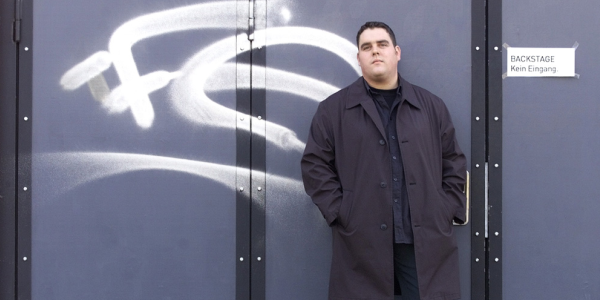Deetron has the ability to blend moods and rock the dancefloor in a multitude of ways
"I’ve had a bit of a lack of sleep because I was working late last night on music," admits Swiss-born musician Sam Geiser when I call him to chat. He’s returning to Australia for the seventh time this month.
There has been talk about his sophomore album circulating for around twelve months now and it’s great to hear him on a creative streak.
"When you’re on a run, when it’s going really well, I tend to work just on and on until it’s finished," he tells me before adding, "The last time I was there was about two years ago and the first time was in 2001 or 2002."
He continues to enthusiastically reveal his love for our continent, "I really love coming to Australia. The country is really amazing and the people are really nice. And the parties are really good – especially in Melbourne! The crowd is really up for it and they are into my sound."
With an ability to blend moods and rock the dancefloor in a multitude of ways, Geiser’s DJ sets are just as respected as his production work under the name Deetron. He got his start in the Hip Hop scene, learning to scratch and blend records, thus cutting his teeth in that arena first. But the sounds of Todd Terry changed all that – the Disco House producer cast his beats in a way that was totally new and Geiser was sent spinning into the world of House music.
He eventually landed a residency at the respected Zurich club Trax and decided to try his hand at production, with his first releases coming out in the late nineties. The early days saw experiments across a range of styles with Geiser separating them by using different production names (Procreation for more downbeat sounds, and Soulmate for the dancefloor amongst others). But after a while he chose to stick with Deetron and he hasn’t looked back.
"I guess all the projects’ sound started to approach each other," he reflects, "So I decided to unite things under the name of Deetron."
It took until 2006 for him to release his debut album, Twisted, on the respected label Music Man Records. It’s something that Geiser admits is partly by design and partly about his own methods. "My working process is quite slow so it always takes a lot of time for me to finish tracks," he says. "Then an album is a much bigger deal than a single – for me anyway. Because it has to be different from just a dancefloor record. You want it to be more accessible for home listening as well."
That consideration of atmosphere and context is a key part of Geiser’s popularity and artistic success. Never one to jump on fashionable movements, he has maintained a great output over the years. I ask him what makes a track stand out for him: "It’s not always a vocal – it could be a dirty, rough beat, a piano. I don’t know what it’s down to but it’s something that grabs your attention in the track. That’s what I actually seek for in the music, you know. There are so many tracks that you don’t get any feeling from. You can hear that it’s well produced and everything but there’s nothing behind it."
He recently collaborated with Seth Troxler for a release on Circus records which he tells me was all done online. "Amazingly we never met so far!" he laughs. "Everything happened over the internet. So I sent him this track and asked him if he would be interested in doing some vocals. He was instantly up for it and he recorded the vocals in New York actually. He sent them over and all the production was done by me – he wasn’t involved."
It’s a brave new world of collaboration but it’s one that Geiser is used to dealing with by now. In addition to his new album he tells me, "There is a compilation out now on Joris Voorn’s label Green. I made two edits – one of an old Ripperton track and one of an old Joris Voorn track. And there are quite a few remixes coming out – I made a remix for Danny Howell. That’s about it." he laughs. There’s more but I really can’t remember it!"

